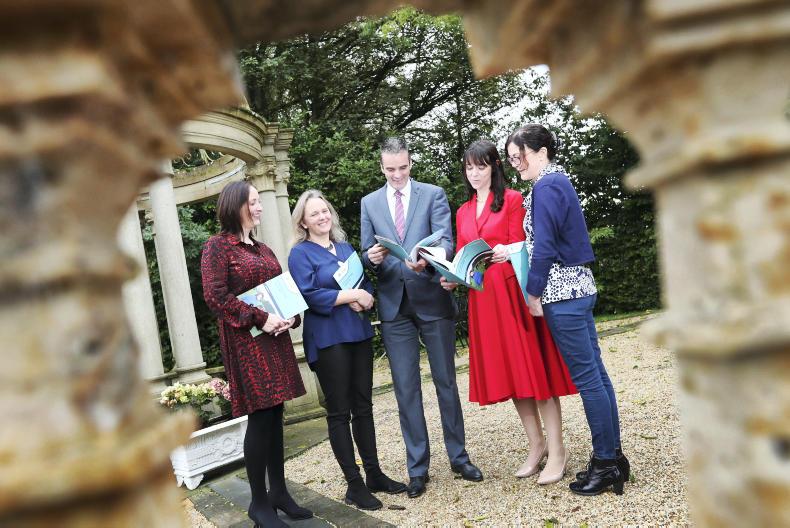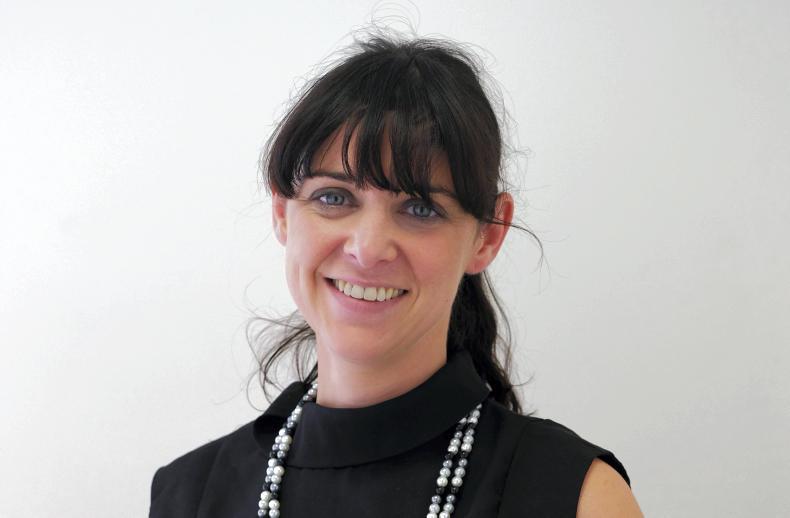And the day is upon us. By the time you read this we will either be at the Women & Agriculture Conference or it will have passed us by, hopefully very successfully yet again. Our line-up is very exciting and last week’s interview with Vicky Phelan, the cervical check campaigner, certainly put a run on the last few remaining tickets. We really hope that everyone goes home from the event having benefitted, in some way, from our conference focus of “being your best you”.
Last week, I attended or followed the activities of a number of diversity and inclusion (D&I) events run by different groups and organisations. First up was the Agri-Food Diversity and Inclusion Forum (AgDIF) which is an industry collaboration led by Bord Bia and Aon, in partnership with the 30% Club. Statistics presented at this event revealed that women make up less than 25% of senior management roles, only 16% of board posts and that one-third of boards are exclusively male in the Republic of Ireland.
The second event was the Irish Farmers Association (IFA) diversity recommendations launch. There were some fantastic speakers at this event, including Professor Sally Shortall who has been working in this area for 30 years, Dr Sharon Greene who is an archaeologist and granddaughter of the NFA first president Juan Greene and Maria Ryan who participated in the IFA Future Leaders Programme. We will cover their stories fully in this paper in the coming weeks.

Maria Ryan, Dr Sharon Greene, Joe Healy, Amii McKeever and Prof Sally Shortall at the launch of the IFA’s Diversity Strategy, Towards 2025 on the UN's International Day of Rural Women. \ Finbarr O'Rourke
It is great to see companies engaging with this issue and the changes that are happening. It is very important that our young girls (and I would be thinking of my own) who will enter the workforce in the future will not find it as male dominated as it has been in the past. Part of this drive for diversity is due to the fact that it makes business sense for companies as they try to attract and hold talent when good candidates are in high demand.
Some organisations will carry out these diversity initiatives voluntarily, as the committee and I did for IFA, but many have staff employed specifically in this area. Given such investment, they are far ahead of agriculture in terms of these strategies.
Some have gone much further than just trying to attract women – they are addressing areas that we have barely begun to consider. This became obvious to me at the MSD D&I event that I attended last Thursday. At this event, head of D&I with the consultancy firm EY Olivia McEvoy spoke of how they are trying to attract “neuro-diverse people”, those with Asperger’s, autism and dyslexia.
There will always be detractors of initiatives
She said that this cohort of people demonstrate a skillset, such as an attention to detail, that companies need for specific roles such as in artificial intelligence, data analytics and robotics. She outlined the challenge in attracting them, as they do not come through the normal recruitment process, which means having to think differently.
There will always be detractors of initiatives such as D&I, particularly at times when it may appear to be diverting focus from other extremely important issues. But organisations that fail to attract new people will find it difficult to keep abreast of those that do.
The best time to plant a tree (or 400 million of them) was 20 years ago, the next best time is now.
Read more
Weekly podcast: gender equality in the IFA and funding the next CAP
Women empowering women: just a week to go to Women & Ag 2019
And the day is upon us. By the time you read this we will either be at the Women & Agriculture Conference or it will have passed us by, hopefully very successfully yet again. Our line-up is very exciting and last week’s interview with Vicky Phelan, the cervical check campaigner, certainly put a run on the last few remaining tickets. We really hope that everyone goes home from the event having benefitted, in some way, from our conference focus of “being your best you”.
Last week, I attended or followed the activities of a number of diversity and inclusion (D&I) events run by different groups and organisations. First up was the Agri-Food Diversity and Inclusion Forum (AgDIF) which is an industry collaboration led by Bord Bia and Aon, in partnership with the 30% Club. Statistics presented at this event revealed that women make up less than 25% of senior management roles, only 16% of board posts and that one-third of boards are exclusively male in the Republic of Ireland.
The second event was the Irish Farmers Association (IFA) diversity recommendations launch. There were some fantastic speakers at this event, including Professor Sally Shortall who has been working in this area for 30 years, Dr Sharon Greene who is an archaeologist and granddaughter of the NFA first president Juan Greene and Maria Ryan who participated in the IFA Future Leaders Programme. We will cover their stories fully in this paper in the coming weeks.

Maria Ryan, Dr Sharon Greene, Joe Healy, Amii McKeever and Prof Sally Shortall at the launch of the IFA’s Diversity Strategy, Towards 2025 on the UN's International Day of Rural Women. \ Finbarr O'Rourke
It is great to see companies engaging with this issue and the changes that are happening. It is very important that our young girls (and I would be thinking of my own) who will enter the workforce in the future will not find it as male dominated as it has been in the past. Part of this drive for diversity is due to the fact that it makes business sense for companies as they try to attract and hold talent when good candidates are in high demand.
Some organisations will carry out these diversity initiatives voluntarily, as the committee and I did for IFA, but many have staff employed specifically in this area. Given such investment, they are far ahead of agriculture in terms of these strategies.
Some have gone much further than just trying to attract women – they are addressing areas that we have barely begun to consider. This became obvious to me at the MSD D&I event that I attended last Thursday. At this event, head of D&I with the consultancy firm EY Olivia McEvoy spoke of how they are trying to attract “neuro-diverse people”, those with Asperger’s, autism and dyslexia.
There will always be detractors of initiatives
She said that this cohort of people demonstrate a skillset, such as an attention to detail, that companies need for specific roles such as in artificial intelligence, data analytics and robotics. She outlined the challenge in attracting them, as they do not come through the normal recruitment process, which means having to think differently.
There will always be detractors of initiatives such as D&I, particularly at times when it may appear to be diverting focus from other extremely important issues. But organisations that fail to attract new people will find it difficult to keep abreast of those that do.
The best time to plant a tree (or 400 million of them) was 20 years ago, the next best time is now.
Read more
Weekly podcast: gender equality in the IFA and funding the next CAP
Women empowering women: just a week to go to Women & Ag 2019






SHARING OPTIONS